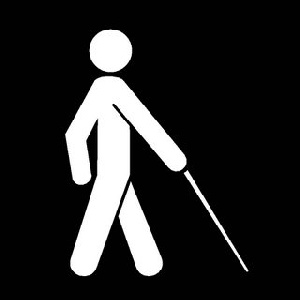The Ghana Blind Union says nearly 90 per cent of blind persons living in rural communities have been repeatedly abused and that the incidence is pervasive.
“Revelations of abuse of blind persons is becoming a hidden epidemic with a huge number of invisible victims,” the union said in a report made available to the Ghana News Agency,
The research report, which is part of the Ghana Blind Union Justice for All project sponsored by STAR- Ghana, said the perpetrators were often persons who misuse a position of trust or take advantage of a victim with actual or perceived vulnerabilities.
Victims are reported having experienced varied degrees of verbal-emotional, physical, sexual and financial abuses with nearly 75 per cent of bind women recording a higher incidence of abuse.
The report said 65 per cent of blind women reported they had been victims of sexual abuse.
According to the report 70 per cent of blind people had been victims of abuse while more than 63 per cent of parents and immediate family members reported that their loved ones had experienced abuse.
It said a little over 87 per cent reported verbal-emotional abuse, bout 51 per cent physical abuse, 42 per cent sexual abuse, some 37 per cent neglect, and 32 per cent have had financial abuse.
It added that blind persons in rural communities do not report abuse to security agencies because they think it would be futile to do so but for those who do report abuse, nearly 75 per cent said no action was taken against the perpetrators.
The report said more than 90 per cent of blind people with disabilities, who were victims of abuse said they had experienced such abuse on multiple occasions while some 57 per cent of the victims said they had been victims of abuse on more than 20 occasions, with 46 per cent saying it had happened too many times for them to even count.
Findings of the report also indicate that the rates of non-reporting are even higher with the most serious forms of abuse in 40 per cent of victims of physical abuse (violence) did not report to the authorities and more than 41 per cent of victims of sexual abuse did not also report.
Blind people, who were victims cited futility, fear, and lack of information as reasons for not reporting, with 58 per cent believing that nothing would happen while 38 per cent had been threatened or were afraid, but 33 per cent did not know how or where to report.
The union described the act as a “historical disadvantage, which has to a great extent been shaped and perpetuated by the notion that blindness is an abnormality or a curse.”
It said “persons with vision disabilities have too often been excluded from the labour force, denied access to opportunities for social interaction and advancement, subjected to invidious stereotyping and relegated to institutions.”
There is the need for a wake-up call to families, service providers, protective services workers, law enforcement personnel, civil society organisations, and advocates for disability rights.
The union called for a dialogue involving policy makers and law enforcement officials at the highest levels of local, regional, and national levels, as well as in-depth media reporting on abuse of blind people.
“All the Ghana Blind Union is asking is that something should be done to improve the situation concerning abuse of blind persons,” the union said.
Regional News of Wednesday, 8 October 2014
Source: GNA













